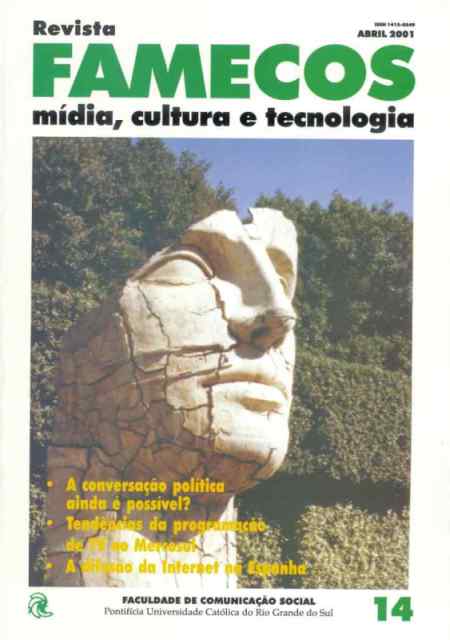Bourdieu, cultural arbitrary and television
DOI:
https://doi.org/10.15448/1980-3729.2001.14.3111Keywords:
Broadcasting, Cultural Practice, PoliticsAbstract
The central proposal of this article is to raise questions about Bourdieuʼs theory on the development of an applied political project. After going through this question, it presents broadcasting as a field for cultural and political practices. Questions will be raised such as developments of contemporary cultural pratices which have to do with the general analyses of Bourdieu. According to the same analysis, could someone try to establish appropriate political answers to developments in television in the United Kingdom and in Europe nowadays?
Downloads
References
ABERCROMBIE, N. et al. The Dominant Ideology Thesis. London: Unwin Hyman, 1980.
BARWISE, P. e EHRENBERG, A. TV and its Audience. London: Sage, 1988.
BOURDIEU, P. Outline of a Theory of Practice, trans. R. Nice. Cambridge: Cambridge University Press, 1977.
______. Distinction: a social critique of the judgement of taste. Cambridge, Mass. Harvard University Press; London: Routledge and Kegan Paul, 1984.
CONNELL, I. Commercial broadcasting and the British Left. In: London Society for Education in Film and TV. v. 24, n. 6, 1983.
GARDNER, C. Populism, relativism end Left strategy. In: London Society for Education in Film and TV. v. 25, n, 1, 1984.
GARNHAM, N. Capitalism and Communication: global culture and the economics of information. London: Sage, 1990.
MANN, M. Consciousness and Action among the Western Working Class. London: Macmillan, 1973.
PEACOCK COMMITTEE. Report of the Committee on Financing the BBC. London: HMSO, 1986.
Downloads
Published
How to Cite
Issue
Section
License
Copyright
The submission of originals to Revista Famecos implies the transfer by the authors of the right for publication. Authors retain copyright and grant the journal right of first publication. If the authors wish to include the same data into another publication, they must cite Revista Famecos as the site of original publication.
Creative Commons License
Except where otherwise specified, material published in this journal is licensed under a Creative Commons Attribution 4.0 International license, which allows unrestricted use, distribution and reproduction in any medium, provided the original publication is correctly cited.






